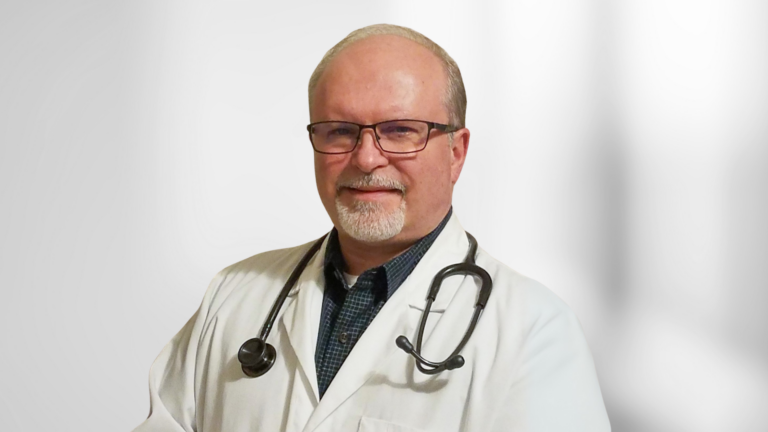Amputation is an acquired condition that results in the loss of a limb, usually from injury or disease (such as diabetes or peripheral vascular disease). Loss of a limb produces a permanent disability that can impact a patient’s self-image, self-care and mobility (movement). To assist individuals in regaining functional independence, the Amputation Program at Baptist Health Rehabilitation Institute includes two phases: the pre-prosthetic phase and the prosthetic phase.
Treatments
Pre-Prosthetic Treatment
The pre-prosthetic phase is for individuals who have sustained a recent amputation. The emphasis in this phase is wound care, stump shaping, mobility training, equipment selection and the establishment of an exercise program emphasizing strengthening and flexibility in preparation for a prosthesis (artificial limb). Patient and family education related to preventing further problems and medical complications is also an important part of this phase of rehabilitation.
Prosthetic Rehabilitation
The prosthetic phase is for individuals who have healed from their amputations and have acquired a prosthesis. They come to rehabilitation (inpatient or outpatient) to assure proper prosthetic fit and to learn to safely function in mobility and daily activities while using the prosthesis.
During this phase, Baptist Health rehabilitation works very closely with the prosthetist that the individual has chosen. Our goal is to provide a smooth transition from inpatient rehabilitation to life at home, work and the community. With fully-equipped kitchens, bedrooms, living room arrangements and bathrooms with movable toilets, tubs and showers, we can create situations specific to each patient’s home setting, resulting in better carry-over after discharge.
To help facilitate the return to a functional lifestyle, patients and their families receive educational instruction related to the disease process, equipment needs, community resources and medication. Individualized family training with members of the treatment team may be scheduled if the patient is likely to require assistance with mobility or self-care after discharge.
Arrangements for outpatient therapy or home health services will be made when indicated.
Referrals
Patients may be referred to Baptist Health rehabilitation services by physicians, family members, friends or a self-referral. A screening examination may be conducted prior to admission. The cost of treatment is covered as with any hospitalization by Medicare, Medicaid, Workers’ compensation and private insurance carriers.
For additional information on how to begin the admission process or to schedule a tour, call 501-202-7011 for Little Rock, 501-681-0974 for North Little Rock or 1-888-227-8478 for Baptist Health HealthLine.
For a comprehensive overview of Baptist Health Rehabilitation’s award-winning care, download the annual report.
Support
The ABLE (Amputees Beyond Life’s Expectations) Support Group is held the first Monday of each month from 11 a.m. to 12 p.m. on the ground floor of the Baptist Health Rehabilitation Institute-Little Rock Learning Center, and the second Monday of each month from 11 a.m. to 12 p.m. in the Dining Room on the 1st floor of the Baptist Health Rehabilitation Institute-North Little Rock.




